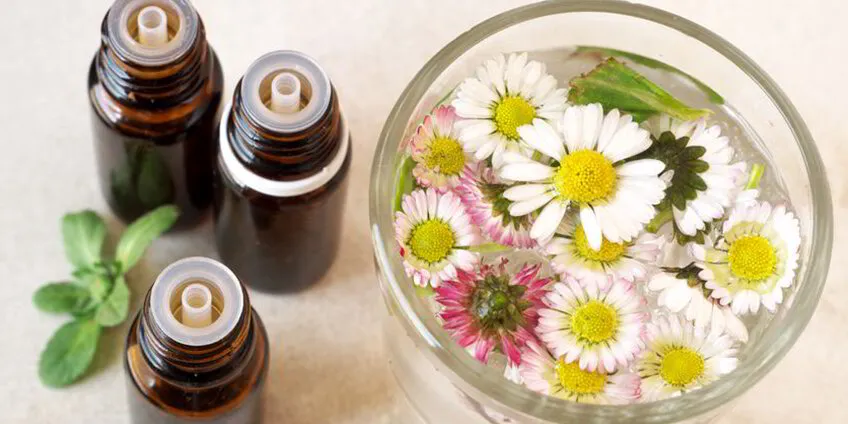.We typically think of using essential oils for their marvelous fragrance, or as a spa treatment.
They do these jobs wonderfully well, but plant essences have also been used as medicine for thousands of years.
First, it’s important to distinguish between essential oils and fragrance oils. Fragrance oils are synthetic oils based on petrochemicals and do not share the therapeutic qualities of natural high-grade essential oils. They are essentially cheap copies of the real thing.
Also, a quick disclaimer. If you are having health problems, you should consult your healthcare professional. This article outlines historical uses of essential oils for digestive issues, and shouldn’t be considered medical advice.
One of the most popular oils for improving digestion is peppermint. It relaxes the smooth muscles of your intestines and has long been used to help relieve gas pressure. But it also helps to calm down reflux. Instead of popping an antacid when you have heartburn, you might want to try a drop or two of peppermint oil in a bit of warm water, and drink it down.
Or if you’d rather not ingest it, add a couple drops of peppermint essential oil to a teaspoon of olive or coconut oil and rub it on your abdomen in a slow and gentle clockwise motion. This is really great for kids’ tummy upsets.
Since it relaxes those digesting muscles, many people find that peppermint tones down IBS (irritable bowel syndrome), a frustrating combination of constipation and diarrhea. (Also helpful for IBS are cumin, coriander, and lemon balm oils.)
Overall, peppermint has a balancing effect on your bowel flora, the bacteria and other microbes that coexist with you inside your intestinal tract. And that’s a community you’ll want to keep happy, as it’s very necessary for your good health.
Like peppermint, clove oil also relaxes the intestinal smooth muscle. In addition, it calms inflammation in the gut lining and reduces intestinal spasms. It has often been used to relieve nausea, bloating, and diarrhea. Clove has antiviral and antifungal properties and can be used to eliminate Candida yeast overgrowth and parasite eggs.
If you just need a little help getting things started, cardamom, ginger, and tarragon essential oils all stimulate the production of the gastric juices.
Appropriate amounts of stomach acids and bile can discourage reflux while balancing peristaltic action (motility). Really helpful if you have a tendency toward constipation. If you aren’t having a daily bowel movement you need a little GI “retraining”.
Got morning sickness? Instead of eating saltine crackers to quell
Essential oils can also be helpful for maintaining good gut health in indirect ways. It is well known that antibiotics kill our beneficial bacteria along with the pathogens they are meant for.
This is a terrible situation as far as your gut is concerned. There are a number of essential oils that can get the job done even though they are not technically antibiotics.
Tea tree oil (or Melaleuca) is commonly used as a topical antiseptic. Some people prefer to dilute this strong smelling oil but it can also be used full strength on cuts and scrapes. It can also be applied to the skin behind the ear (not inside the ear canal) if you suspect an ear infection.
Lavender essential oil is probably the most popular scent used in aromatherapy. And it is also a great antiseptic. Good for cuts, scrapes, and burns, it can be used
About the Author Dr. Kerri Howerton
Over the last 7 years, I have expanded my training to become a board certified clinical nutritionist, licensed sports nutritionist with the National Association of Sports Nutrition, active member of the Institute of Functional Medicine, certified functional medicine practitioner through Functional Medicine University and a member of the International and American Associations of Clinical Nutritionists. Read More



